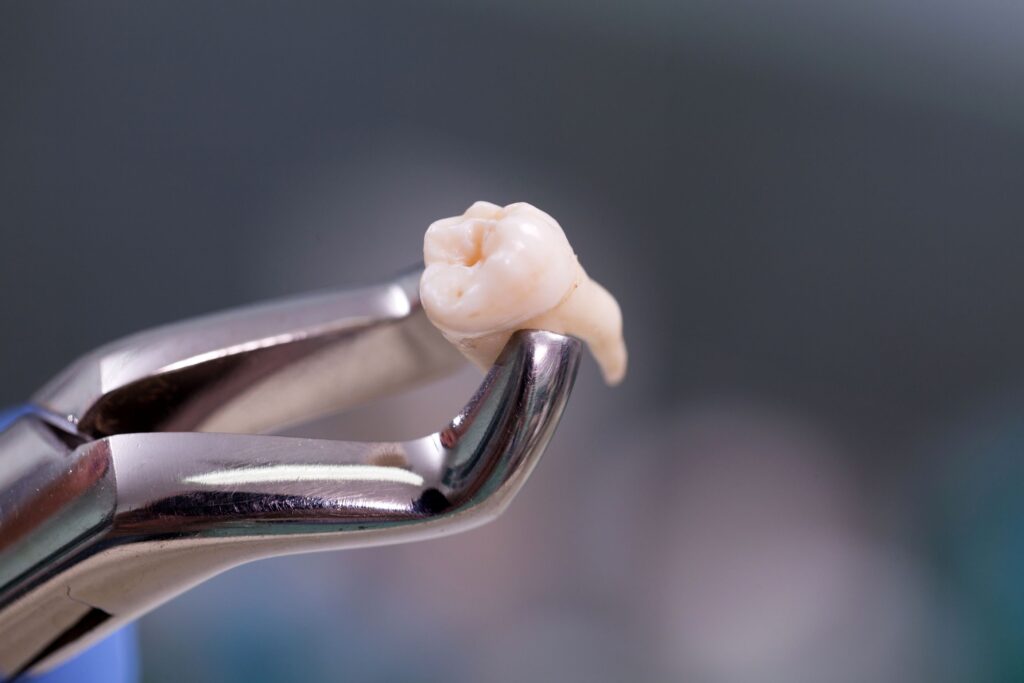
In most circumstances, your dentist does everything they can to protect and preserve your natural teeth. Whether they provide preventive care to increase your resistance to common oral issues or treat concerns like cavities or gum disease, it’s all intended to safeguard your smile.
However, if you have a severely decayed or damaged tooth that’s too injured or diseased to be treated effectively, they might have no recourse but to remove and replace it. If you’re anxious that your procedure could hurt, continue reading to learn more about what tooth extractions typically feel like!
Why Do I Need to Have a Tooth Removed?
Under normal circumstances, your dentist provides different services to address any concerns with your teeth or gums, like alleviating a toothache with a root canal or mending a decayed tooth with a restoration, like a filling or crown.
Unfortunately, some teeth are too injured to be mended and can potentially detract from your overall dental health. For instance, cavities are contagious and can spread to your jawbone to weaken the foundation of your mouth, which contributes to tooth loss. You might also require removal if your wisdom teeth are struggling to erupt because they can become impacted or infected, overcrowd neighboring teeth, and cause a great deal of discomfort.
It’s often better to remove the source of the problem in these circumstances than to allow it to progress.
What do Tooth Extractions Feel Like?
It’s natural to feel intimidated or anxious about your upcoming procedure, but your dentist understands that many people dread extractions and will do everything they can to help ease your frayed nerves. For instance, they will apply a local anesthetic around the affected tooth before starting the procedure to numb the nerves and keep them from sending pain signals to your brain. You’ll likely feel some pressure in your mouth as your provider works, but it shouldn’t hurt.
Many dentists also offer sedatives, like nitrous oxide (laughing gas), to help you feel relaxed and calm throughout your treatment. This won’t render you unconscious, but it reduces your body’s ability to sense and respond to external stimuli. You might feel a tingling sensation in your limbs or develop a case of the giggles, which earned this medication its popular nickname.
How Much Pain Is Normal After My Procedure?
Because you’ll be medicated during your appointment, you won’t need to worry about discomfort until the drugs wear off. Then, you’ll likely experience aches and inflammation for a few days as your bone and gum tissues mend. Your mouth must form a blood clot over the extraction site to protect the exposed nerves and bone.
However, this clot can be dislodged by strenuous physical activities, overly hot food and drinks, drinking from a straw, or smoking tobacco products. This can result in an achy complication known as dry socket.
If you experience throbbing, bleeding, or swelling that doesn’t subside after about 5 days, you should contact your dentist to ensure you haven’t developed an infection!
About the Practice
At Care 32 Dental of Grand Prairie, you and your family benefit from a team of dentists dedicated to helping you build and maintain your happiest, healthiest smiles. They collaborate cohesively to offer a comprehensive menu of services at one convenient location, including tooth extractions. Then, they combine a caring and compassionate approach with advanced equipment to improve your comfort while providing accurate treatment results intended to last. If you have a troublesome tooth causing problems, you can request an appointment on the website or call (469) 346-8828.
